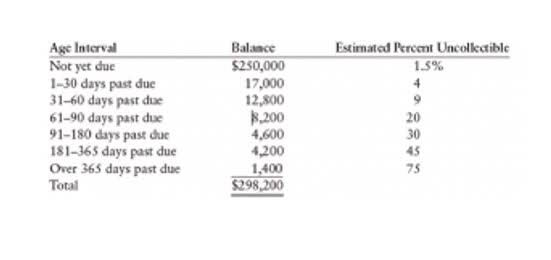
An audit for nonprofit organization involves examining the organization’s financial records to make sure they are complying with the requirements of a tax-exempt entity. If the auditor finds that these requirements are not being met, the organization will most likely lose its nonprofit status. Your organization’s development team assigns an audit committee to perform internal audits. Your board will give the auditing https://www.bookstime.com/ committee authority to oversee all audits, including hiring and evaluating an independent auditor. If you’ve had an audit before, you might already have access to a past Pulled by Client (PBC) list of items that your auditor will need from you. If you’re new to the audit process, you can request one of these documents from your auditing firm so that you can prepare the information your auditor needs.
The auditor’s letter is attached to the front of your financial statements. A clean bill of health from an auditor shows the world that you’re keeping your books in a responsible manner. There are a few different types of audits that a nonprofit organization can go through. The most common type of audit is the financial statement audit, which is conducted by an audit guide for small nonprofit organizations independent certified public accountant (CPA). This type of audit is required for nonprofits that receive government funding, and it is also recommended for nonprofits that want to maintain good financial practices. However, many foundations, government grants, and large donors may require audited financials as a part of their giving consideration process.
Other State Audit Regulations
If any of your nonprofit’s funding comes from the government, you should be sure to determine whether you are legally required to conduct an independent audit. This means you have more control over when, where, and how you conduct independent audits. Sometimes state and federal laws require you to audit your nonprofit, but that’s not always the case. And even if you don’t have a legal obligation to conduct an audit, a financial examination can still be a huge boost for your organization. Regardless of whether an audit committee is used, all charitable nonprofits should review their practices to ensure that there is independence in the oversight of the auditor(s).
Donorbox is an all-in-one online fundraising platform for nonprofits of all sizes. Our simple-to-use and powerful features range from Donation Forms and Fundraising Pages to Recurring Donations, Crowdfunding, Peer-to-Peer, Events, Memberships, and more. You can also easily store and manage your donor and donation data on Donorbox. Our tool integrates with leading CRM tools to help you utilize this data to the max! The IRS will audit your nonprofit if there are discrepancies in your tax reports, but instances of this are few and far between.
Does my organization need an independent audit?
If your nonprofit is not required to have an audit, you may still choose to have one conducted on a voluntary basis. However, to achieve certain certifications or seals of transparency, a nonprofit may be required to make audited financials available on its website along with current and previous year’s Form 990 filings. If any errors or omissions are found, the auditor will report them to the board of directors. If your nonprofit does not meet any of the criteria above, an audit is likely not required unless your state has different criteria.

Classy’s comprehensive fundraising platform offers unified giving tools that help optimize the donation process. In fact, 95% of Classy’s customers choose our platform year after year for the highest-quality solutions. The auditor you choose will have a big impact on the quality and actionability of your audit. So do your due diligence when choosing one—focus on finding the right firm to suit your use case. For example, users on your accounting software might not follow password best practices, or there may be too loose of access privileges across your organization.
What does the auditor review?
In addition to all of the inherent benefits of conducting a nonprofit financial audit, there are also charity watchdogs who provide information about charities to potential donors. These watchdogs may rank your organization higher if you’ve conducted an audit. This also increases the element of transparency with your supporters who do their research before contributing, assuring them that you’re a trustworthy organization. Nonprofit audits may seem scary, but they can actually be quite helpful! You’ll be able to identify opportunities to improve your organization’s internal controls, financial practices, and more.
By displaying that you have nothing to hide, you, in turn, brand yourself as a trustworthy organization. Being transparent about your finances will help you build relationships in the community and with donors. Donors want to be assured that you are a trusted, reputable organization. By being open with your financial statements, it shows donors that you are trustworthy. There are even several websites that rate nonprofits on their reliability based on, among other things, how often they volunteer to be audited.
Nonprofit Audits: A Complete Guide to Financial Auditing
For example, your state might impose audit requirements if your income and spending exceed a certain threshold. And some nonprofit grants require a satisfactory audit before your nonprofit can receive funding. Common reasons why you might conduct a nonprofit audit are to improve your charitable organization’s financial position, transparency, accountability, and bookkeeping practices. In short, it helps you keep track of your donations and expenses and ensures no malpractice behind closed doors. The following illustrative independent auditor’s report template is intended to assist not-for-profit financial statement auditors.
- Terminology is critical in accounting, so don’t be afraid to check a term if you’re unsure what it means.
- The best way to determine this for each option is by asking for a request for proposal (RFP).
- There are two types of financial reporting that nonprofits must adhere to, the financial review and the financial audit.
- These suggestions can be anything from improving financial controls to increasing fundraising efforts.
- This means you’ll need to pull together some documentation and reports that your auditor will be using during the auditing process.
There are two types of financial reporting that nonprofits must adhere to, the financial review and the financial audit. The size of the organization and the complexity of its financial transactions are the primary factors that affect the cost and time of an audit engagement. Other factors include the number of locations, the number of employees, the number of funders, the number of volunteers, and the geographic dispersion of the organization’s operations. Here is some estimation of the order of magnitude cost of an audit based on the nonprofit organization’s financial size.
